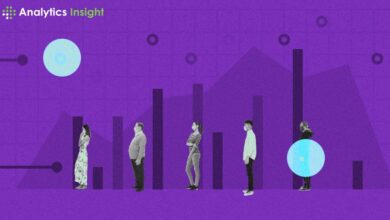Innovative Data Analysis Contest Spearheaded by Regulatory Agency to Foster Job Creation

The Food and Drug Administration of South Korea is taking a creative step towards job creation through the launch of a data analysis competition centered on the health food and medical devices sector. The prospective contest crafted by the regulatory body, starting from the 15th, aims to harness diverse planning ideas and accelerate the development of products and services by utilizing extensive data relating to food and medicine.
Participants in this competition can submit entries in various categories, including ideas for startups, web and app service development, nutrition analysis in the food sector, and studies on the lifecycle of pharmaceuticals. To encourage forward-thinking proposals, ideas incorporating artificial intelligence technology will receive additional points.
Contestants will undergo a rigorous selection process involving an initial document review followed by a presentation evaluation. Winners can look forward to a substantial prize totaling 11 million won as well as commendations from the head of the Food and Drug Administration.
In a unique opportunity, the top-scoring entrant in the startup category will also earn a chance to compete in the 12th Government-Wide Public Data Utilization Startup Competition, hosted by the Ministry of the Interior and Safety.
Entries for the data analysis competition can be submitted via the official data portal of the Food and Drug Administration from the 15th to the 31st of the month. An official from the regulatory body expressed high hopes for the discovery of innovative ideas in this competition, reiterating their commitment to expanding the valuable use of food and drug data across multiple industries.
Current Market Trends:
The trend toward big data and analytics in the healthcare sector is expanding rapidly, with an increasing focus on leveraging data for improvements in healthcare services, medical research, and regulatory compliance. Areas such as machine learning, predictive analytics, and personalized medicine are gaining significant attention. Companies are also utilizing data analysis to gain a competitive edge by optimizing operations, marketing strategies, and enhancing customer experiences.
Forecasts:
The data analytics market in healthcare is projected to continue its growth trajectory, fostering new innovations and attracting investment. According to industry reports, the global healthcare analytics market size is expected to grow significantly over the next few years. As the volume of health-related data continues to expand, the demand for advanced tools and skilled professionals capable of interpreting this data will likely increase.
Key Challenges or Controversies:
Challenges in this domain include data privacy and security concerns, as well as the need for a skilled workforce to handle complex analytics tools. Ensuring the ethical use of data while safeguarding sensitive information is paramount. Interoperability and data sharing between disparate systems and organizations remain obstacles to maximizing the potential of data analytics in healthcare.
Most Important Questions Relevant to the Topic:
1. How will the data analysis contest influence job creation in the health food and medical devices sector?
2. What measures are in place to protect sensitive data used in the competition?
3. How does the application of AI in data analysis contribute to innovation in healthcare?
Advantages:
– Encourages innovation by leveraging large datasets unavailable to individual researchers or small firms.
– Stimulates job creation by fostering the growth of startups and supporting the development of data analysis skills.
– Bolsters the health sector with new products and services designed to improve quality and efficiency.
Disadvantages:
– Requires considerable expertise to participate effectively, potentially limiting access to well-resourced individuals or organizations.
– May raise concerns about the privacy and security of health-related data.
If you are interested in learning more about the current trends in data analytics within the healthcare sector and regulatory initiatives to drive innovation and job creation, you can explore the following links:
– U.S. Food & Drug Administration for regulatory initiatives.
– Data.gov for open data resources by the U.S. government.
– Organisation for Economic Co-operation and Development (OECD) for data-driven innovation analyses and reports.
Please note that respective URLs should lead to the main pages of the organizations mentioned and are provided to give the reader a starting point for their own research into this topic.



